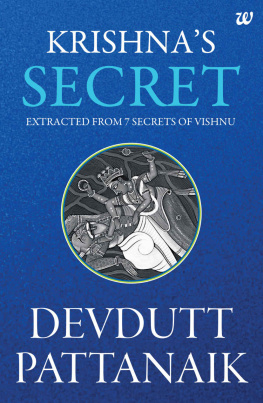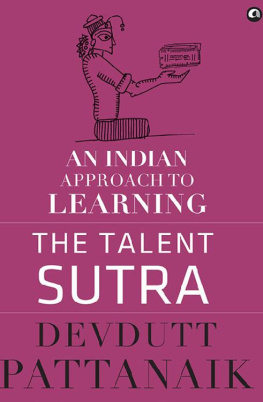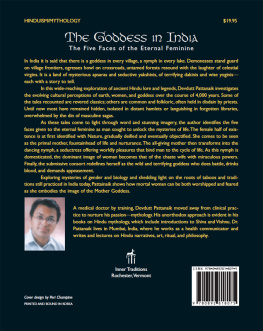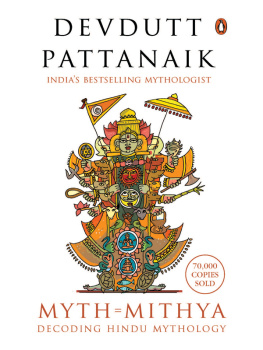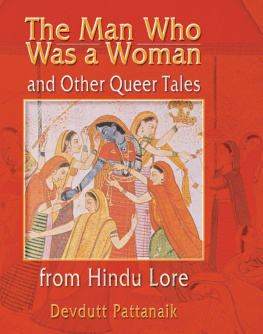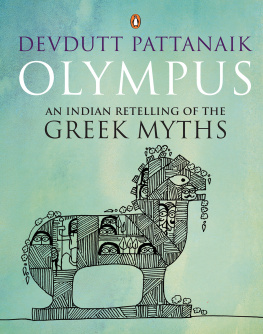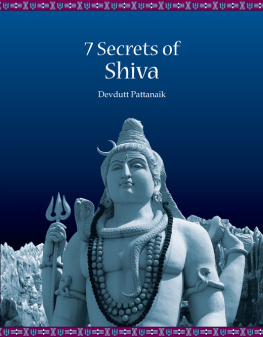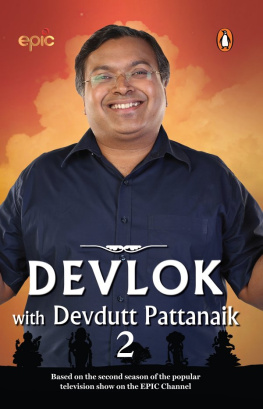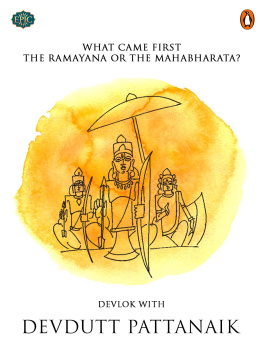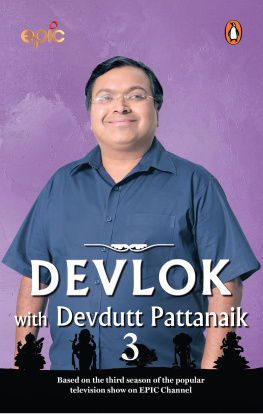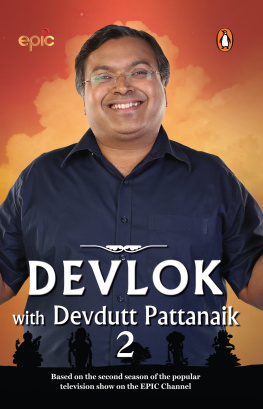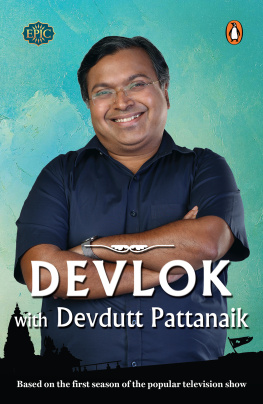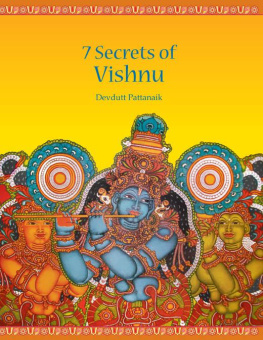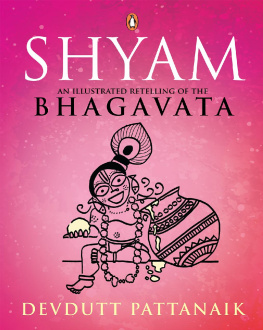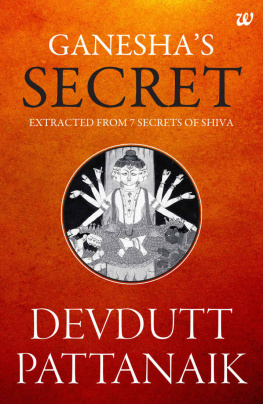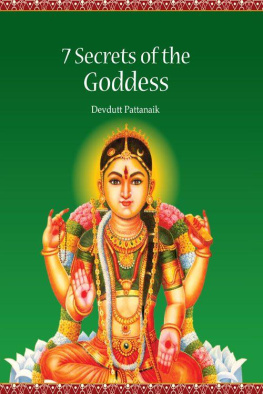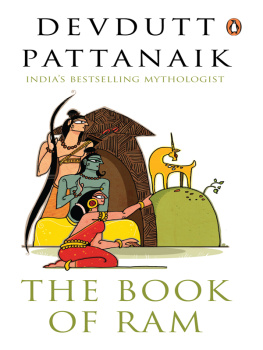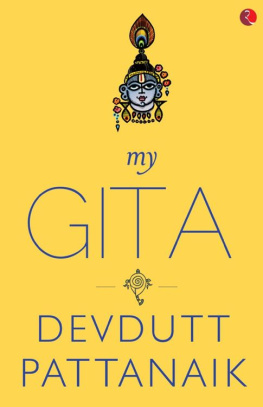westland publications ltd
61, II Floor, Silverline Building, Alapakkam Main Road, Maduravoyal, Chennai 600 095
93, I Floor, Sham Lal Road, Daryaganj, New Delhi 110 002
Krishnas Secret
This ebook edition has been extracted from 7 Secrets of Vishnu
First published by westland ltd, 2011
Copyright Devdutt Pattanaik, 2011
Inside illustrations copyright Devdutt Pattanaik, 2011
This ebook edition first published by westland publications ltd, 2017
Copyright Devdutt Pattanaik, 2017
cover design for this ebook edition copyright westland publications ltd, 2017
All rights reserved
CONTENTS
Know the thought behind the action
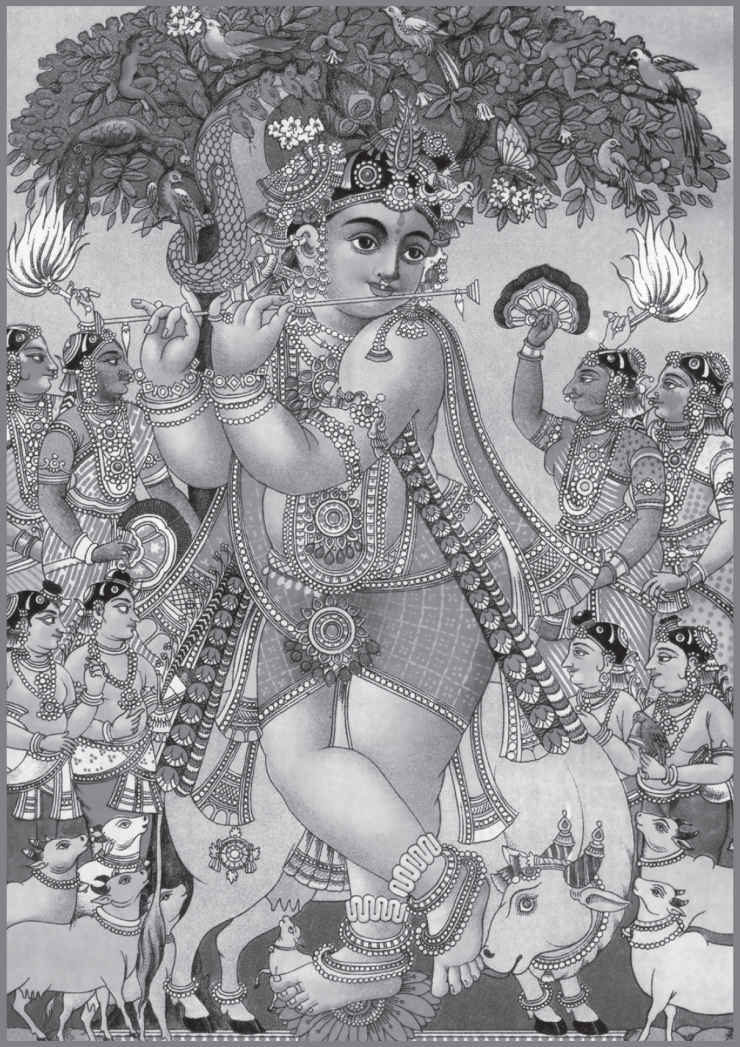
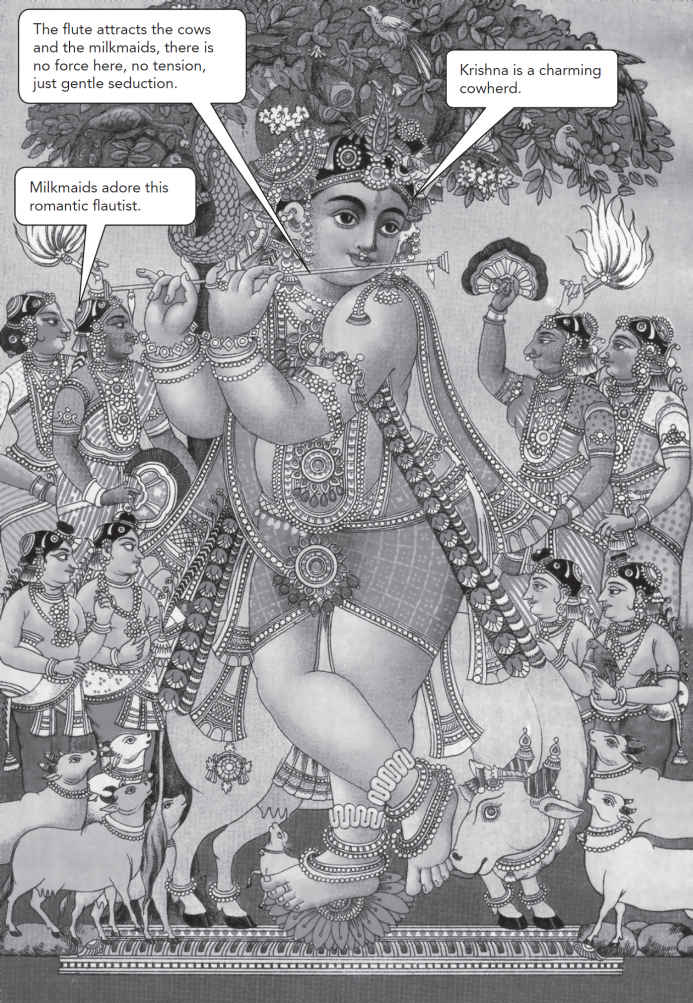
Tanjore-style print showing the Krishna of Bhagavata
T he story of Krishna is spread across two epics: the Bhagavata and the Mahabharata .
Bhagavata refers to Krishna as the flute-playing, playful, lovable, mischievous, romantic cowherd who loves butter. Mahabharata refers to Krishna as the conch-blowing city-builder, warrior, leader, philosopher, statesman and charioteer covered with the grime of war. Together these two Krishnas create the purna-avatar, the most wholesome manifestation of God.
But Krishna is an unusual God. He challenges all conventional notions of divinity and appropriate social conduct. His name literally translates as black, challenging the traditional Indian discomfort with the dark complexion. He is visualised as either cowherd or charioteer, never as priest or king, a deliberate association with the lower strata of society. His mother is not his real mother, his beloved is not his wife, and the women he rescues are neither his subjects nor members of his family. His lovemaking is not really lovemaking; his war is not really war. There is always more than meets the eye. And so, only Krishna, of all the avatars, sports a smile, a mischievous, meaningful smile. There is always more than meets the eye, when Krishna is around.
WHILE RAM IS CALLED MARYADA Purushottam, he who upholds rules of society at any cost, Krishna is called Leela Purushottam, he who enjoys the game of life. Unlike Ram, who is serious and serene and evokes respect, Krishna is adorable and rakish, and evokes affection. Rams story takes place in the second quarter of the world, the Treta yuga, when the bull of dharma stands on three legs. Krishnas story takes place in a later, third quarter of the world, the Dvapara yuga, when the bull of dharma stands on two legs. Krishnas world is thus closer to the world we live in, the final quarter or Kali yuga, and shares the hazy morality and ethics we encounter today. In this world, the concept of dharma becomes even more difficult to express and institute. And this is most evident in the story of Yayati.
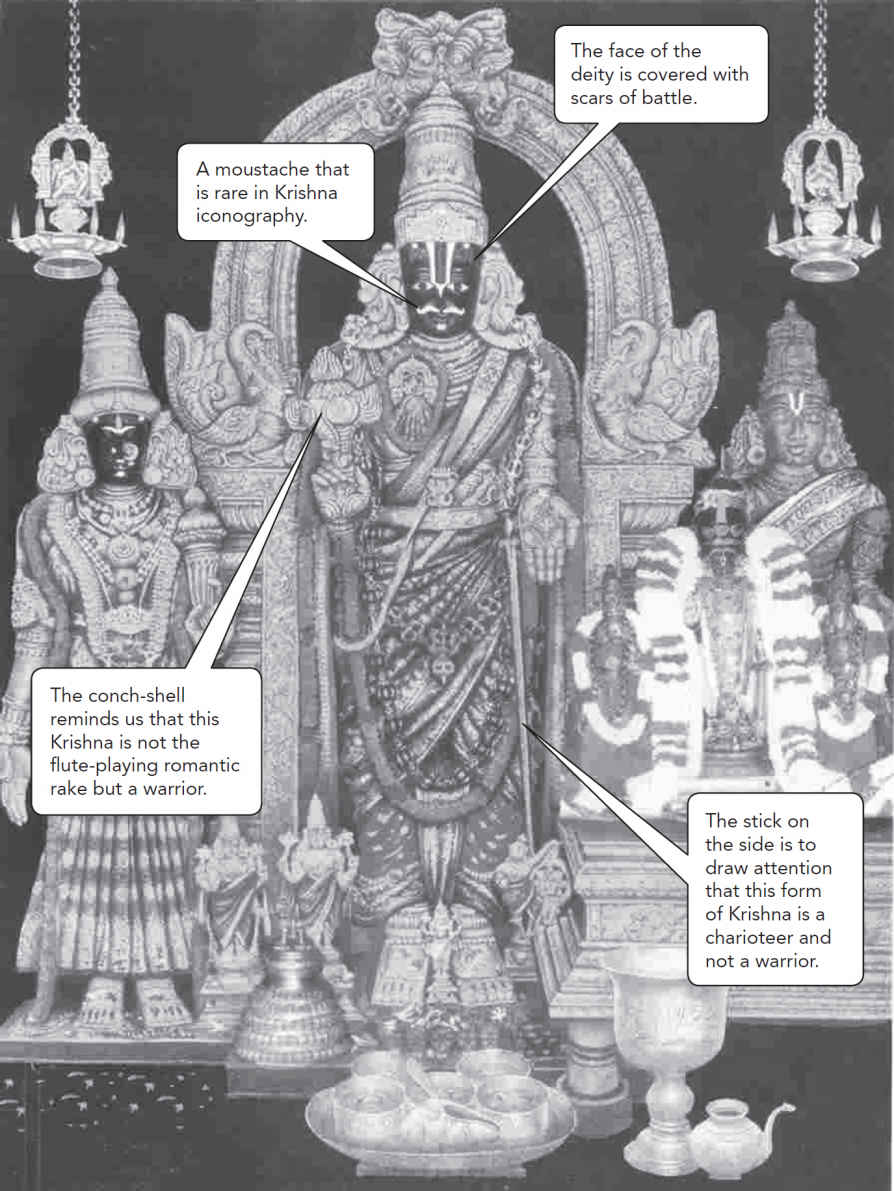
A print of Parthasarathy of Chennai
Yayati, an ancestor of Krishna, is cursed by his father-in-law to become old and impotent when he is discovered having a mistress. Yayati begs his sons to suffer the curse on his behalf so that he can retain his youth. Yadu, the eldest son, refuses to do so because he feels his father should respect the march of time and not feed on the youth of his children. Puru, the youngest son, however, agrees to accept his fathers old age. Purus sacrifice makes Yayati so happy that, years later, when he has had his fill of youth, he declares that the younger Puru will be his heir and not the elder Yadu. Further, he curses Yadu that none of his children or his childrens children will be entitled to wear the crown.
Krishna, being Yadus descendent, is therefore never king. Kingship passes on to Purus descendents, the Pandavas and Kauravas, even though time and again they demonstrate their unworthiness to wear the crown.
What seems a good thing in Rams yuga becomes a bad thing in Krishnas yuga. Rams unquestioning obedience of his father transforms him into God. But Purus unquestioning obedience results in the collapse of society. Dashratha requests Rams obedience so that he can uphold his word. Yayati, however, demands the obedience of his children for his own pleasure. Yayati exploits the rule for his own benefit whereas Dashratha enforces the rule so that royal integrity is never questioned. The rule (obey the father) evokes dharma in Dashrathas case, but not so in Yayatis.
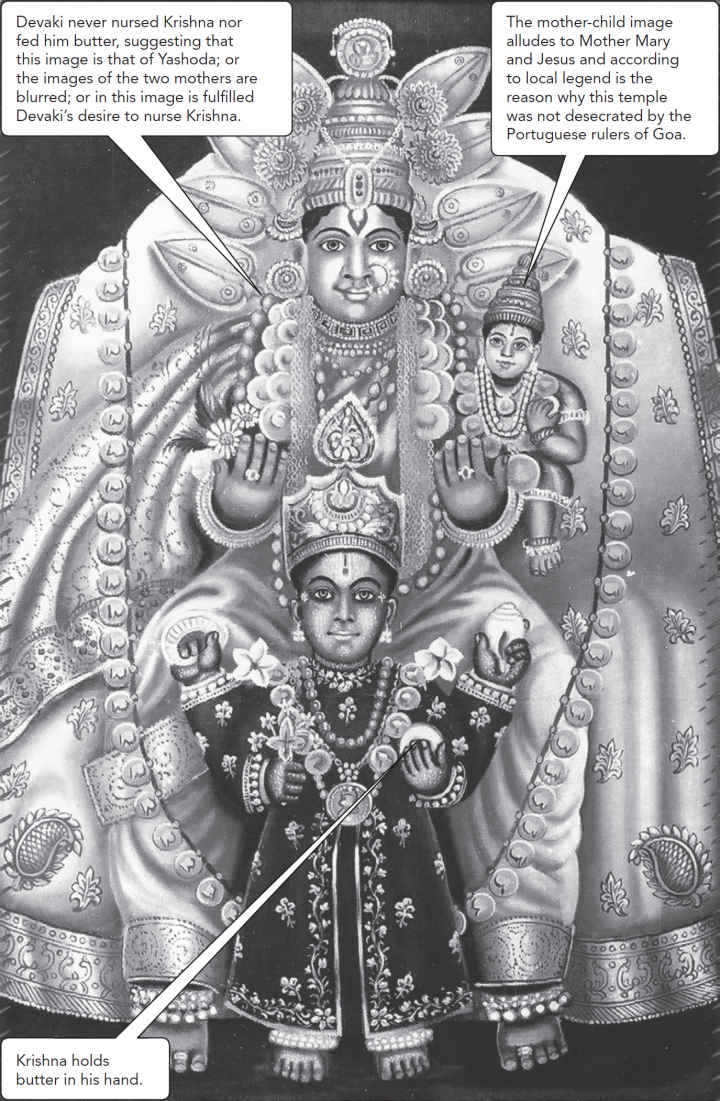
Print of Devaki Krishna enshrined at Marcela, Goa
Yayatis conduct results in a society where the letter of the law becomes more important than the spirit of the law. This is the world of Krishna, a world where what matters more than the deed is the thought behind the deed.
THE STORY OF KRISHNA BEGINS in Mathura, the city of the Yadavas. It is foretold that the eighth child of Devaki will kill her elder brother, Kamsa. Consumed by fear, Kamsa kills all of Devakis children as soon as they are born.
The night Devaki delivers her eighth son, her husband Vasudeva takes him across the river Yamuna to Gokul. There, he exchanges his son for the daughter of Yashoda and cowherd-chief Nanda, who is born the same night. Yashoda wakes up to find Krishna in her arms. She assumes this is her son and raises him as a cowherd. Kamsa, meanwhile, tries to kill the girl he finds in Devakis arms but the child slips out of his grasp, rises into the air, transforms into a goddess and informs him that his killer is safe. Kamsa fumes in frustration as he realises all his attempts to change his destiny have come to naught.
Krishna, as a consequence of his fathers actions, ends up with two mothers: Devaki who gives birth to him and Yashoda who raises him. Devaki is a woman of noble rank. Yashoda is a common milkmaid. Devaki represents all the qualities one is born with. Yashoda represents all the qualities one acquires in life. Thus Krishnas divinity, rooted in Devakis blood and Yashodas milk, acknowledges both nature and nurture.
We are all a combination of what we are born with as well as what we are raised to be. Our natural disposition is known as varna while the cultural indoctrination is jati. Krishna is by varna a nobleman but by jati a cowherd. Though nobleman, he can never be king. Though cowherd, he can always lead.
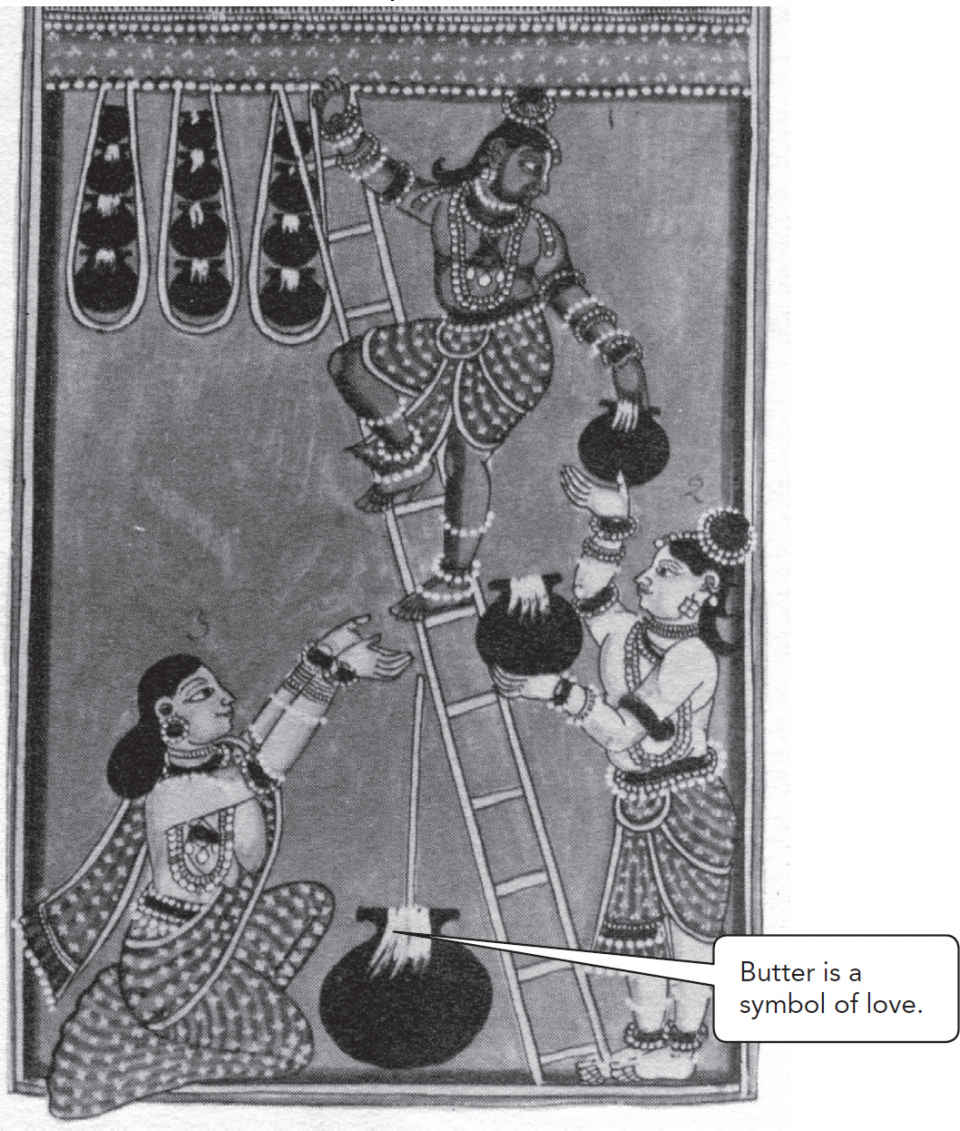
Mysore painting showing Krishna stealing butter
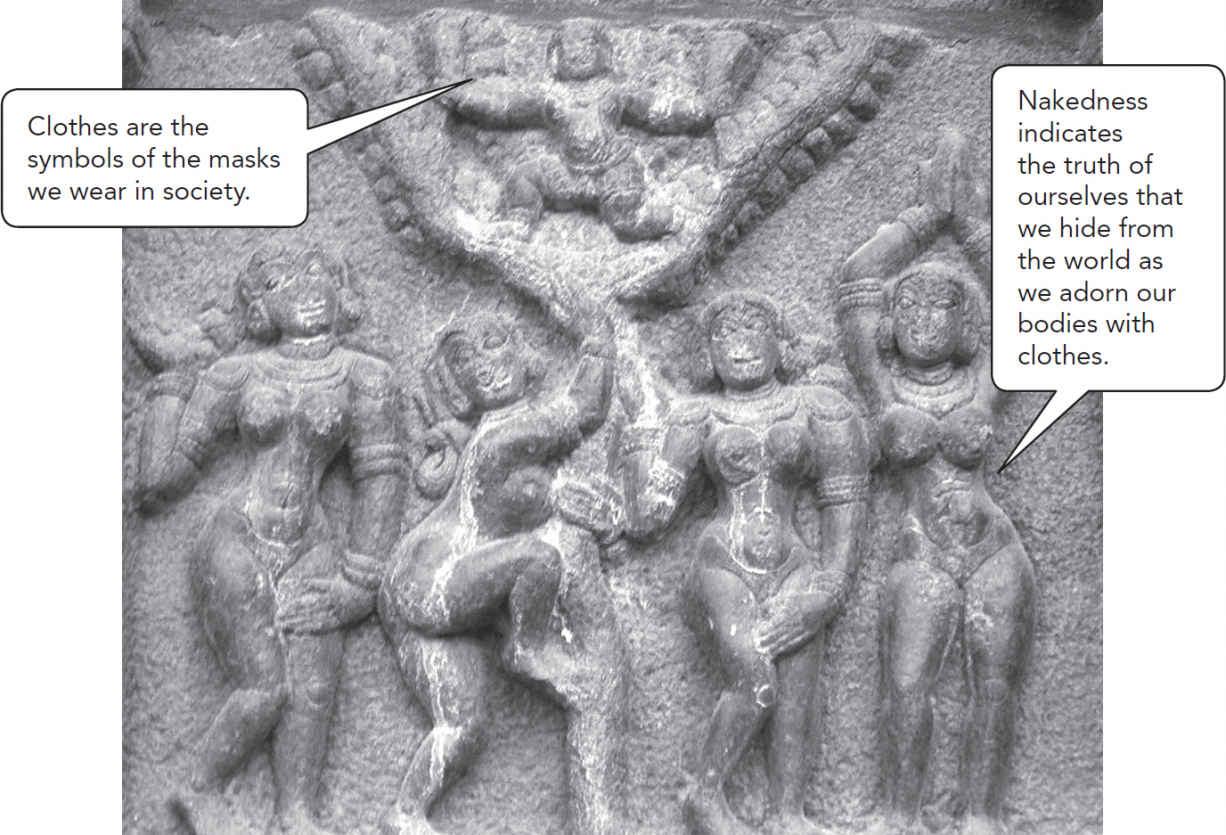
A south Indian temple wall carving showing Krishna stealing clothes
Our behaviour towards others is based on what we see and how we process our observation. But not all things can be seen. Jati can be seen but not varna. One can see behaviour but one has no access to beliefs. A man can dress as a cowherd and talk like a cowherd, but he may at heart be a prince. We will never know unless we open our eyes to this possibility.
IN KRISHNAS NARRATIVES, BUTTER, CHURNED out of milk, is the symbol of love. The milkmaids of his village hoard the butter in pots hung high from ceilings, out of everyones reach. They are only for sale. Krishna protests and demands its free distribution. And so, with a naughty glint in his eye, he climbs on the shoulders of his friends, reaches up to the pots and breaks them with glee, letting the butter of love flow out.
Next page
